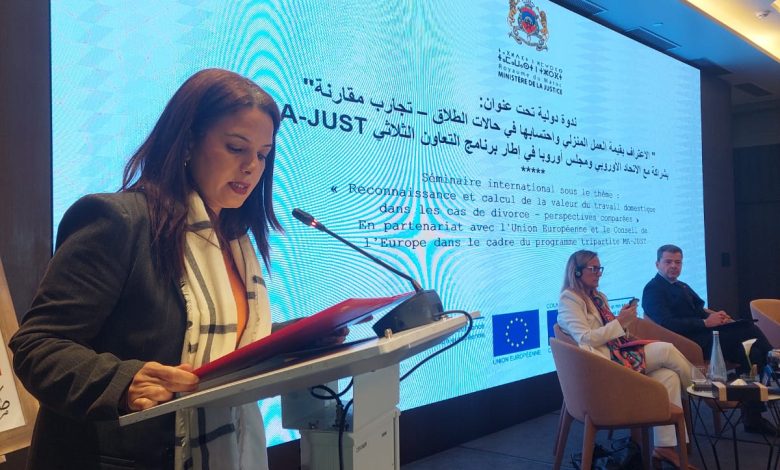The Ministry of Justice is organizing an international symposium on the recognition and calculation of the value of unpaid domestic work in cases of divorce – an important step in the family reform workshops

This article was automatically translated from HIBAPRESS, the Arabic version:
Hibapress-Rabat
As part of the family reform workshops of the family code, and in partnership with the European Union and the Council of Europe, the Ministry of Justice organized on Tuesday April 15, 2025 in Rabat, a high -level international seminar entitled:
“Recognition and calculation of the value of unpaid domestic work in cases of divorce – comparative experiences”.
This conference is part of the dynamics of global reform that Morocco is experiencing under the visionary leadership of His Majesty King Mohammed VI and which aims to promote the principles of justice, dignity and equity within the family, by paying particular attention to the protection of the rights of women and children and to the promotion of economic equality between the sexes.
Rima Leblaili, Director of Cooperation and Communication at the Ministry of Justice, delivered the opening speech on behalf of the Minister of Justice, Abdellatif Wehbi, who stressed that the legal recognition of the value of unpaid domestic work, often carried out by women in silence, is an urgent necessity to establish social justice within the family, in particular at the end of the conjugal relationship. She stressed that the family code in its current form, despite the achievements it has accumulated, still requires substantial changes, in particular with regard to article 49, which governs the financial assets of the spouses. In this context, she stressed that Morocco seeks, through the coming reform, to strengthen the recognition of the non -monetary contribution within marriage, and to adopt a fair approach which considers domestic work as an economic value to be integrated into the legal and financial equation in the event of divorce.
A certain number of experts, judges and academics of several European countries, including France, Spain, Belgium, Germany, Portugal, Switzerland and Ireland, participated in the seminar, where they reviewed the experiences of their countries in terms of taking into account domestic work in the distribution of marital heritage and compensation, whether through legal texts, of family mediation.
The interventions focused on pioneering models such as the financial compensation system for domestic work in Spanish law (article 1438), the French approach which adopts the principle of equity in the granting of services, as well as the Swiss and Belgian models which attach importance to domestic effort in a logic of sharing loads and gains. This seminar aims to enrich the national debate, to strengthen comparative accumulation and to reaffirm the opening of Morocco to international experiences, within the framework of its legislative sovereignty and its firm attachment to the values of equality, social justice and human dignity, and to consolidate the principle of partnership within the family as a common space based on balance and solidarity.







